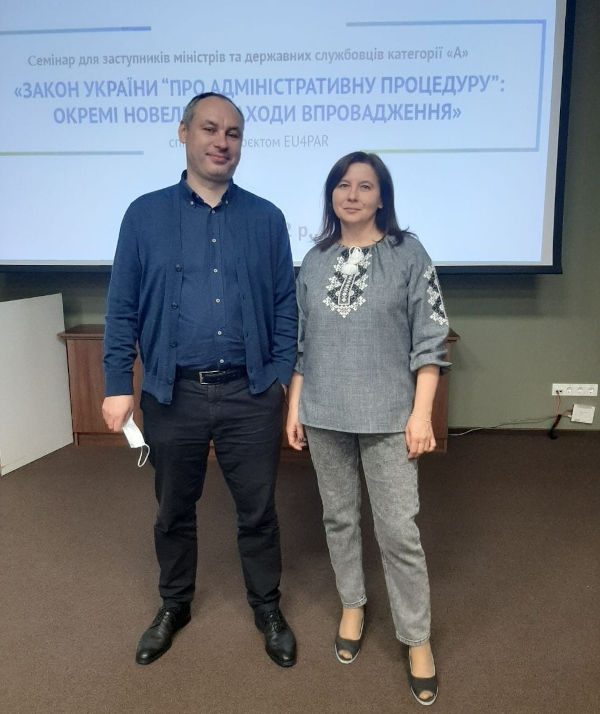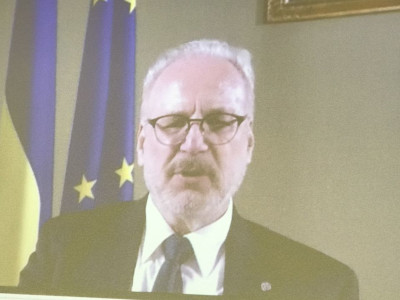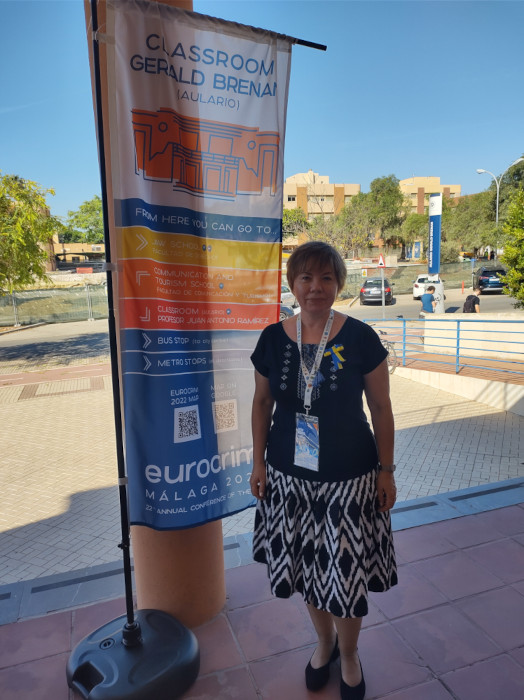


On September 28-29, 2022, the seminar for deputy ministers and state secretaries on the topic: "The Law
"On Administrative Procedure": individual amendments and implementation measures" took place.
It was organized by the Ministry of Justice of Ukraine and the Reforms Delivery Office of the Cabinet
of Ministers of Ukraine with the assistance of the European Union within the framework of the project
"Support to Comprehensive Reform of Public Administration in Ukraine" (EU4PAR).
Irina Boyko, Member of the Board of the Center for Ukrainian Legal Studies, took part in the event as a speaker.
The President of the Republic of Latvia Egils Levits addressed the participants of the seminar.
He was one of the developers of the administrative and procedural legislation of Latvia, and therefore
he had the opportunity to professionally evaluate Ukrainian law. In his opinion, the Law of Ukraine
"On Administrative Procedure" fully meets European standards in the field of public administration.
President Egils Levits emphasized that the "On Administrative Procedure" is key in establishing the rule
of law in the state, and the Constitution works thanks to the mechanisms laid down in this law.
The discussion that took place between the participants of the seminar became the basis for the formation
of a statesman's position regarding the need for normative and organizational implementation of
the provisions of the Law "On Administrative Procedure".


Olena Shostko, the Head of the board of the "Ukrainian Center of Legal Studies", took part in the 22nd annual conference of the European Society of Criminology (21 - 24 September, 2022), where she gave the presentation "Mass Atrocities during Russian Aggression against Ukraine in 2022: Scale and Peculiarities".
Olena Shostko spoke on the panel called "Conflict, Atrocity Crime and Post-Conflict Justice in Ukraine" together with colleagues from Germany, Great Britain, Croatia, and the Netherlands.
After two previous online conferences, the XXII conference was held in the Spanish city of Malaga. The Conference attracted more than 1,400 participants.
Plenary and section meetings were held at the University of Malaga - one of the largest public universities in Spain with over 36,000 students in the bachelor, master's and doctorate program.
Participation in the conference became possible due to the Small Grants Program of the "The Ukrainian Fulbright Circle" as well as fellowship of the European Society of Criminology.
Click here to view the presentation.
On February 21, 2022, Olena Shostko took part, as a lecturer, in the training of the judges of the High Anti-corruption Court, which was conducted by the National School of Judges of Ukraine in cooperation with the Anti-Corruption Initiative of the European Union in Ukraine.
Olena Shostko presented for discussion lectures on Ukraine's international obligations
in the field of anti-corruption, the legal framework and practical problems
of whistleblower protection, best practices and international standards
on asset recovery and certain issues of civil confiscation.
Read more about the training
here.


